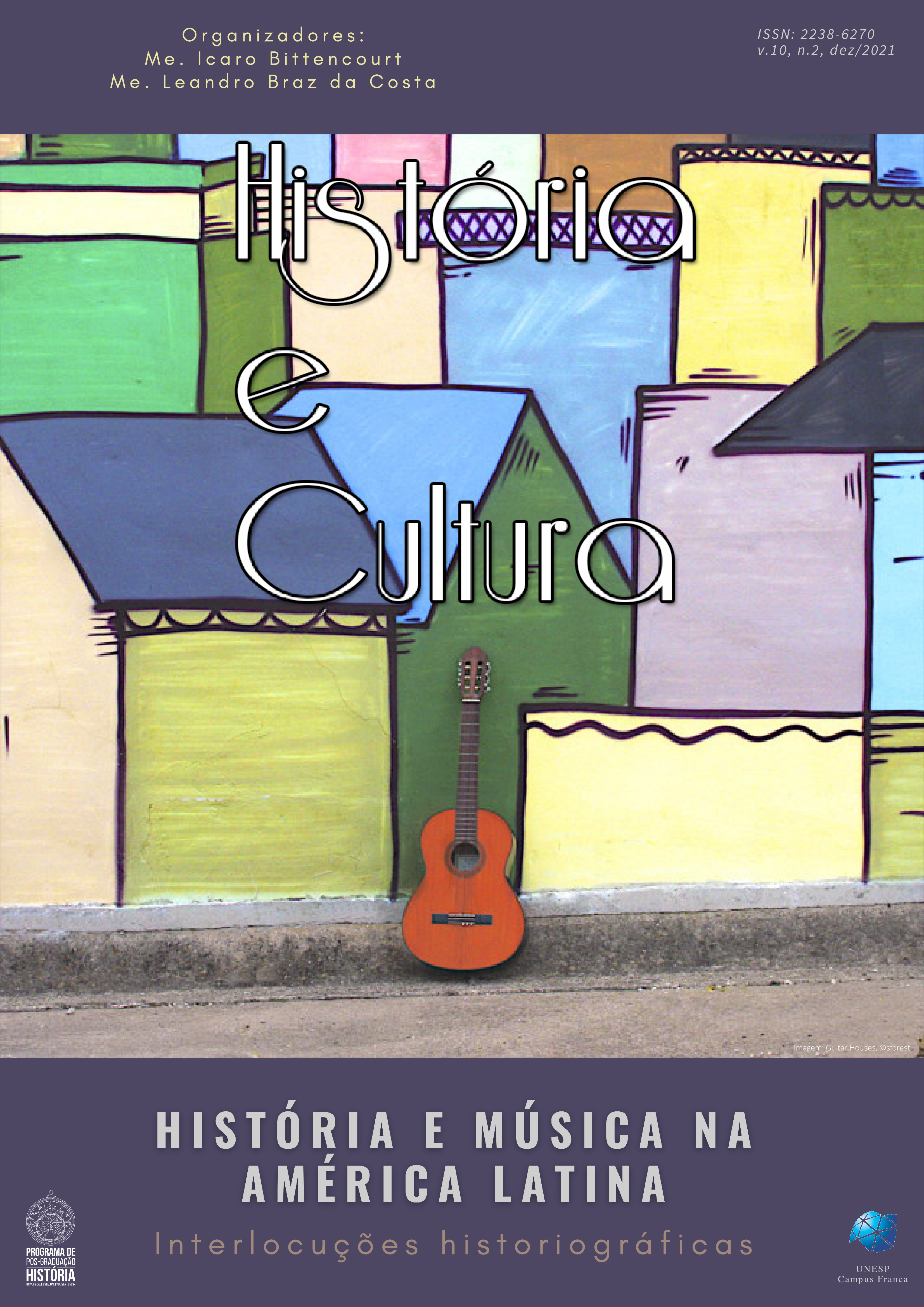DESBUNDAR IS A POLITICAL ACT: NOVOS BAIANOS AND THE BRAZILIAN MILITARY DICTATORSHIP
DOI:
https://doi.org/10.18223/hiscult.v10i2.3499Abstract
During the Brazilian military dictatorship (1964 – 1985), the influence of the international Counterculture reached Brazil and the Brazilian youth based on subjective, cultural, and individual revolutionary assumptions. Often, the Brazilian counterculture experience was mediated by the idea of the “desbunde”: an expression created by left-wing activists to describe the individuals that were political “alienated”. A lot of local artists were classified as “desbundados”, and among them were the musical group Novos Baianos. However, the main aim of this article is to demonstrate how the posture adopted by this band represented a political confrontation against the military dictatorship, on a very different interpretation of that proposed by the left-wing during that time. For that, we utilize the considerations of Pierre Ansart about the political passions as a guide for the reading of the chosen historical sources, that are: the documentary Novos Baianos Futebol Clube (Solano Ribeiro, 1973) and the book Novos Baianos: a história do grupo que mudou a MPB (Luiz Galvão, 2014).
Downloads
Published
Issue
Section
License
Os(as) autores(as) são os detentores dos direitos autorais dos artigos encaminhados à Revista História e Cultura e fica autorizado ao periódico a publicação do referido manuscrito. O trabalho permanece licenciado sob a Licença Creative Commons Attribution CC BY 4.0, a qual permite o compartilhamento do material desde que a autoria seja devidamente atribuída e referenciada.

